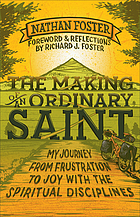Moore-Jumonville, Robert, Dale Ahlquist, & Brian Shaw (Illustrator). Jogging with G.K. Chesterton: 65 Earthshaking Expeditions. Cheshire, CT: Winged Lion Press, 2014.
 Imagine having the brilliant journalist and prolific Christian author G.K. Chesterton as your daily jogging partner. This is precisely what Robert Moore-Jumonville did for over twelve years – he read LOTS of Chesterton’s books and, during his daily jogging routine, reflected on them. The resulting essays appeared in Gilbert magazine, the monthly publication of the American G.K. Chesterton Society. JOGGING WITH G.K. CHESTERTON is a showcase for the merry mind of Chesterton. But Chesterton’s lighthearted wit always runs side-by-side with his weighty wisdom. These 65 “earthshaking expeditions” will keep you smiling and thinking from start to finish. You’ll be entertained, challenged, and spiritually uplifted as you take time to breathe the crisp morning air and contemplate the wonders of the world. “This is a delightfully improbable book in which Chesterton puts us through our spiritual and intellectual exercises with mind-jogging and body-jiggling brilliance. It will leave you breathless with the exhilaration and exhaustion of the Chestertonian chase.” Joseph Pearce Author of Wisdom and Innocence: A Life of G.K. Chesterton “G.K. Chesterton is one of the giants of the Christian intellectual tradition. If you want to learn about him, or learn more than you now know, I heartily recommend JOGGING WITH G.K. CHESTERTON. It will delight, entertain, instruct and challenge you.” Richard J. Foster Author Celebration of Discipline and Sanctuary of the Soul Robert Moore-Jumonville is Professor of Christian Spirituality at Spring Arbor University in Michigan and the pastor of Pope United Methodist Church. He is the author of Hermeneutics of Historical Distance and co-authored (with Thom Slatterlee) two books of selected readings from G.K. Chesterton.
Imagine having the brilliant journalist and prolific Christian author G.K. Chesterton as your daily jogging partner. This is precisely what Robert Moore-Jumonville did for over twelve years – he read LOTS of Chesterton’s books and, during his daily jogging routine, reflected on them. The resulting essays appeared in Gilbert magazine, the monthly publication of the American G.K. Chesterton Society. JOGGING WITH G.K. CHESTERTON is a showcase for the merry mind of Chesterton. But Chesterton’s lighthearted wit always runs side-by-side with his weighty wisdom. These 65 “earthshaking expeditions” will keep you smiling and thinking from start to finish. You’ll be entertained, challenged, and spiritually uplifted as you take time to breathe the crisp morning air and contemplate the wonders of the world. “This is a delightfully improbable book in which Chesterton puts us through our spiritual and intellectual exercises with mind-jogging and body-jiggling brilliance. It will leave you breathless with the exhilaration and exhaustion of the Chestertonian chase.” Joseph Pearce Author of Wisdom and Innocence: A Life of G.K. Chesterton “G.K. Chesterton is one of the giants of the Christian intellectual tradition. If you want to learn about him, or learn more than you now know, I heartily recommend JOGGING WITH G.K. CHESTERTON. It will delight, entertain, instruct and challenge you.” Richard J. Foster Author Celebration of Discipline and Sanctuary of the Soul Robert Moore-Jumonville is Professor of Christian Spirituality at Spring Arbor University in Michigan and the pastor of Pope United Methodist Church. He is the author of Hermeneutics of Historical Distance and co-authored (with Thom Slatterlee) two books of selected readings from G.K. Chesterton.




